
TCM talk highlights the importance of maintaining vital energy during the Covid-19 pandemic
To educate the public on the treatment and health care of Traditional Chinese Medicine (TCM) and raise public awareness of the roles of TCM, UTAR Department of Soft Skills Competency (DSSC) of Sungai Long Campus and the Department of Chinese Medicine are organising Traditional Chinese Medicine Webinar Series (拉曼大学中医在线讲座) from May 2021 to January 2022.
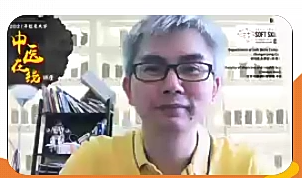

Dr Te kick-starting the TCM Webinar Series
The webinar series was kick-started by UTAR Faculty of Medicine and Health Sciences (FMHS) Department of Chinese Medicine Head Assoc Prof Dr Te Kian Keong on 30 May 2021. He conducted a virtual talk titled “How to take care of vital energy and balance immunity during Covid-19 pandemic” (在新冠疫情间,中医教你如何顾护正气,平衡免疫力) via ZOOM. It saw more than 140 participants consisting of students, staff and the public.
Dr Te first introduced the TCM webinar series and gave a brief introduction on the topic and focus, namely “Prevention and treatment, which is more important?”, “What is healthy qi (vital energy)?”, “How to protect healthy qi?” and “The importance of healthy qi during Covid-19 pandemic”.
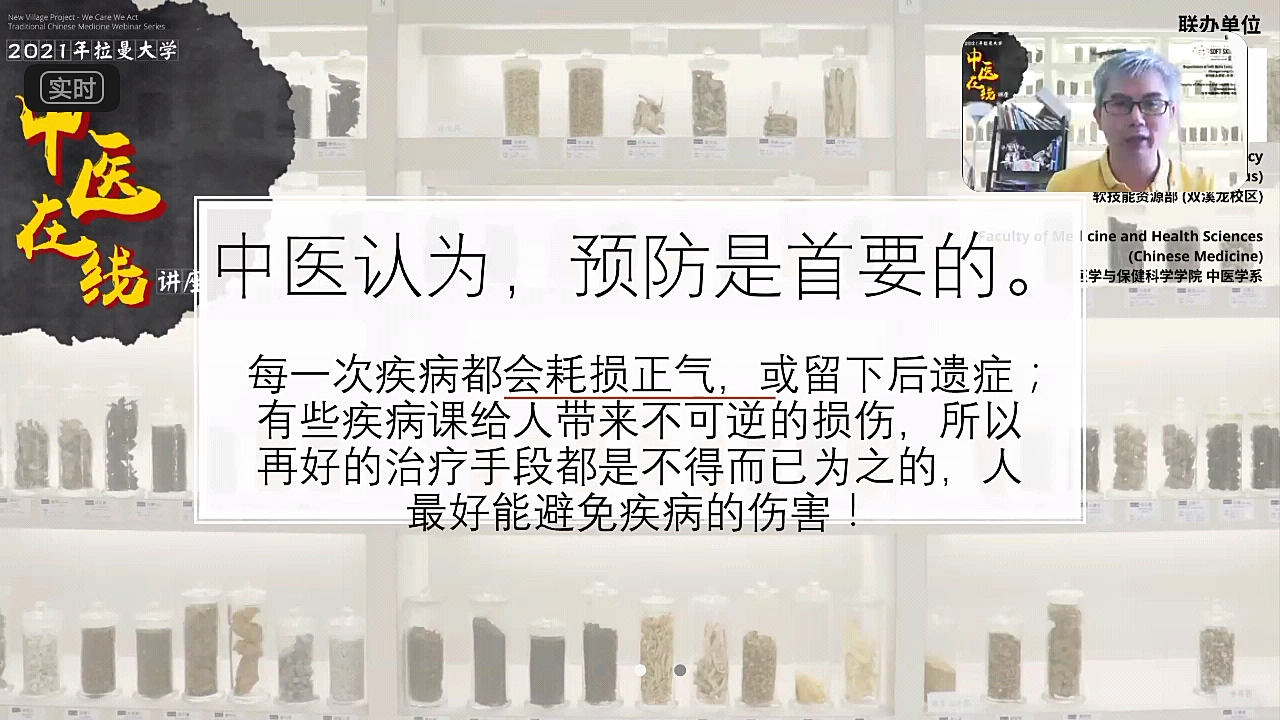
Prevention is the first priority in Chinese medicine
He mentioned, “Chinese medicine believes that prevention is the first priority because every disease will deplete the healthy qi or will leave sequelae; some diseases can even bring irreversible damage to the human body. Treatment is the last resort, so it is better for humans to avoid the harm caused by disease.” He also explained the theoretical foundation and guiding ideology of Chinese Medicine prevention.
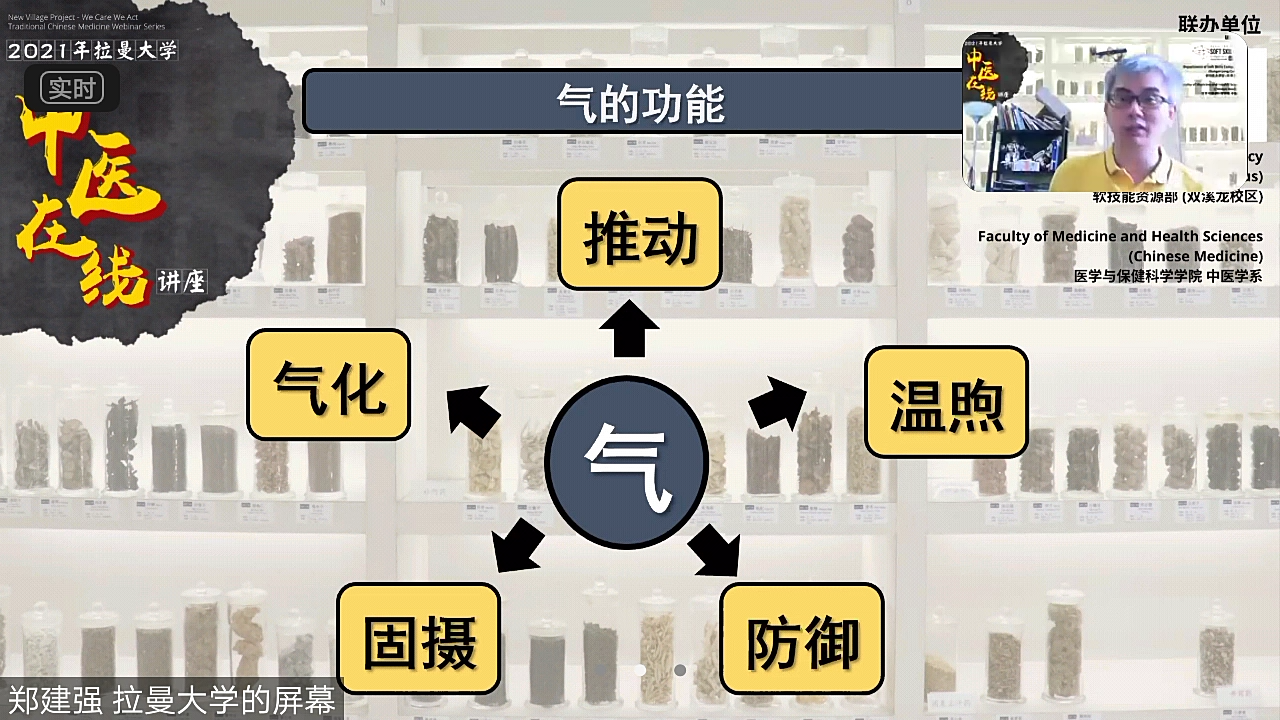
The five main functions of qi are actuation, warming, defence, containment and transformation
Further on, he elaborated the functions of qi and said, “Qi is the most basic substance that constitutes the human body, the basic substance to maintain human life activities and the power source of human life activities. The functions of Qi are actuation (推动), warming (温煦), defence (防御), containment (固摄) and transformation (气化). We can take care and protect healthy qi through mental recuperation, diet regimen, daily life regimen, exercise and avoiding the invasion of pathogens to balance our immunity.”

Dr Te elaborating on how to take care of and protect the healthy qi in our body
“‘Mental recuperation’ stresses on avoiding mental factors which will weaken the healthy qi and lead to the invasion of pathogens. Emotion fluctuations will actually affect our internal organs and qi. During the pandemic period, it is important for us to maintain a positive and optimistic emotion, and also get along with people peaceably to maintain emotional stability. The ‘Diet regimen’ advocates eating on time, 70% full, not picky or partial eclipse, reasonable collocation, and consume medicated food and herbal tea appropriately. ‘Daily life regimen’ emphasises on practising habits on regular work and rest, combining work with relaxation in everyday life, and wearing clothing suitable to the weather/season. ‘Physical exercise’ helps us to exercise the muscles, bones and joints; dredge the meridians and promote blood circulation. It is recommended to have at least 30 minutes of exercise every day for healthy qi. ‘Avoiding the invasion of pathogens’ means focusing on avoiding poisonous factors. Everyone is encouraged to strictly abide by the 3W and 3S rules, especially in this period of time,” he added.

Dr Te introducing Wu Ye Yin and Lian Hua Dai Cha Yin (Dai Cha Yin / herbal tea)
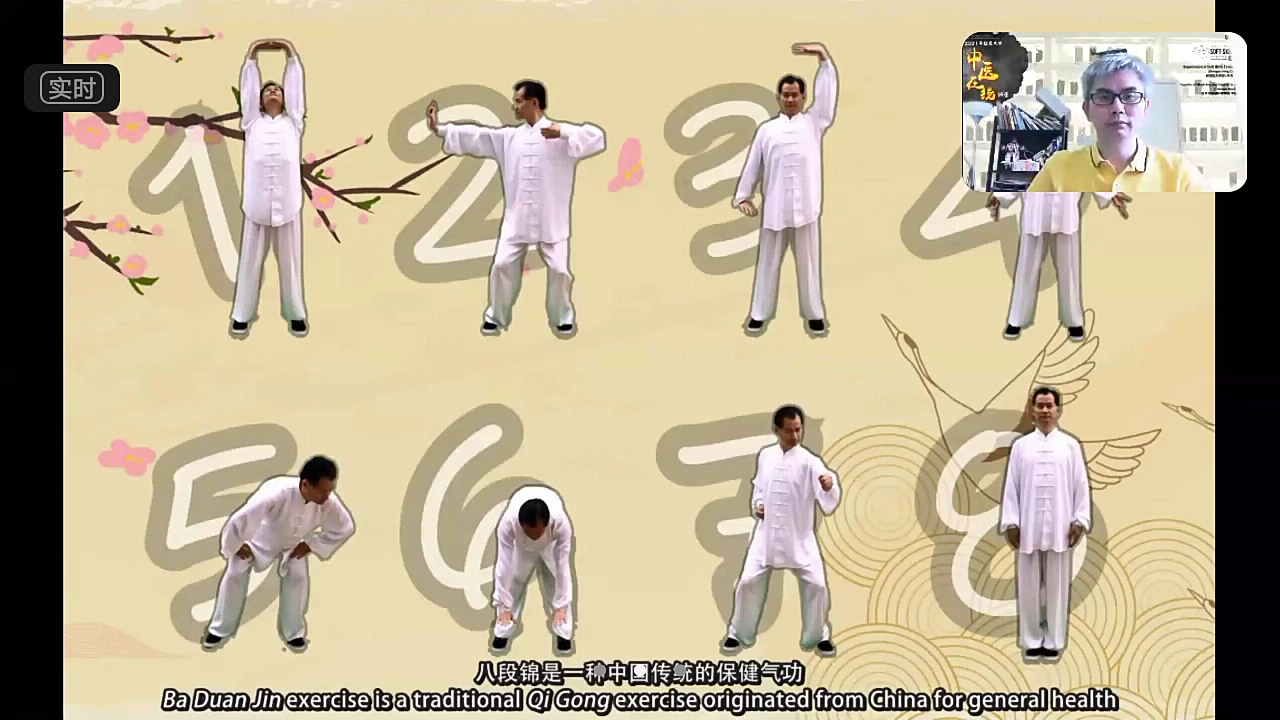
Dr Te demonstrating the Ba Duan Jin exercise
Explaining the importance of maintaining healthy qi during the Covid-19 pandemic, he said, “According to the concept of prevention in Chinese medicine, we should ‘give prevention the priority’ (未病先防) before infected by the Covid-19; ‘prevent transmission and change’ (已病防变) when/if infected by the Covid-19; and ‘prevent recurrence’ (病后防复) after recovering from the Covid-19. The Chinese Medical Classics ‘Nan Jing: The Classic of Difficult Issues’ (《难经》) says ‘The best doctors are those who can prevent the occurrence of disease. Measures must be taken to strengthen the pi (spleen) in the treatment of liver disease because liver disease tends to transmit to pi’. It means the development of liver disease will cause the pathogen to invade the pi organ. Treatment should first start with enriching the pi qi, so that the pi qi is exuberant. And to avoid the pi to be affected, and to block the spread of pathogens.”
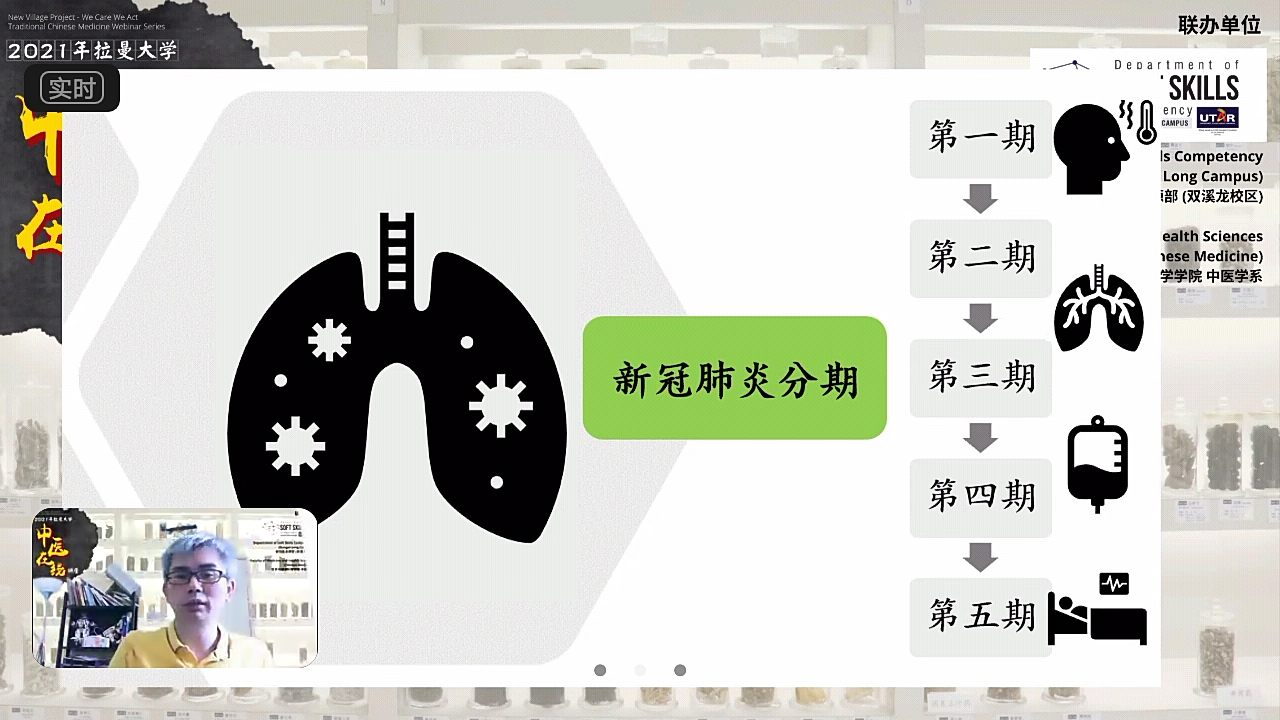
The Covid-19 has been classified into five clinical stages in Malaysia
He added, “The Covid-19 has been classified into five clinical stages in Malaysia. In the first stage, patients are asymptomatic, however those in the fifth stage experience multi-organ failure. We must treat it early to prevent our illness from developing into the critical fourth or fifth stages.” He also explained the importance of healthy qi in each stage and the importance of strengthening the healthy qi for discharged Covid-19 patients.
Before ending his talk, he encouraged the discharged Covid-19 patients and contacts to visit mytcm.my (initiated by the Malaysian Chinese Medical Society of Epidemic Control and Prevention - CMEC) to seek Chinese medicine assistance (complimentary herbal tea, Chinese medicine, consultation) if needed. He then made a brief introduction on UTAR Hospital and TCM services available in the hospital, including Chinese internal medicine, acupuncture, massage, gynaecology, paediatrics, dermatology, oncology, ENT, rehabilitation and others. The hospital will consist of an initial phase of 100 beds for TCM. The hospital will also provide clinical training for FMHS students.
During the Q&A session, the speaker exchanged with participants topics related to urticaria, exercising at night, body constitutions, diseases and internal organs and TCM treatment, to name a few.
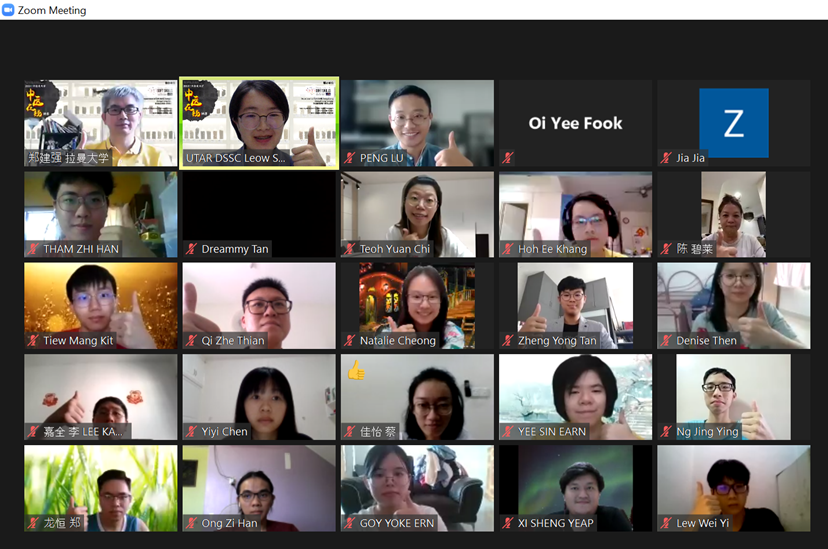
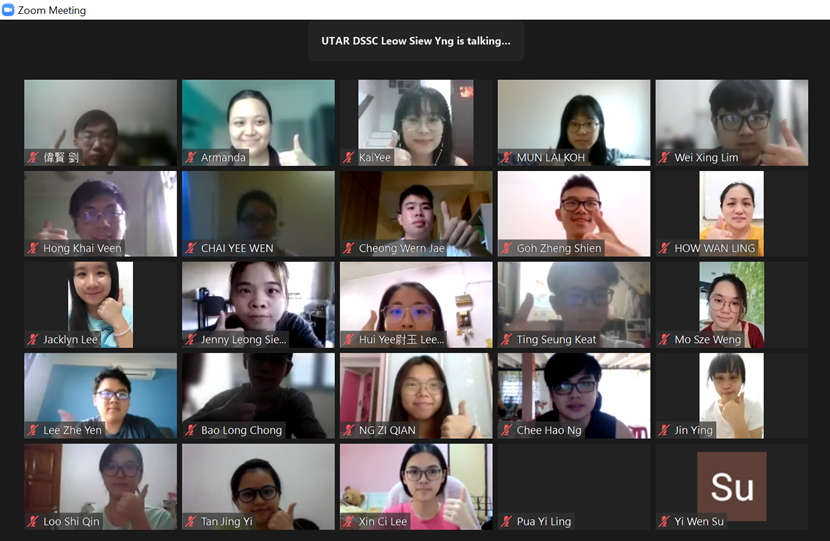
The talk received a good response from the staff, students and the public
UTAR international student-cum-emcee Lu Peng said, “I am glad to have the opportunity to become the emcee for the first webinar session. The speaker was very professional in sharing the information and patient in answering all the questions in detail. All the community audience left positive feedback and they hope this meaningful activity can be sustained.”
Traditional Chinese Medicine Webinar Series is led by DSSC staff Leow Siew Yng together with Dr Te. The talks will be conducted by academics from the Department of Chinese Medicine. The topics include traditional Chinese exercise, sinusitis, Chinese medicine treatment, chronic kidney disease, Tui Na, cervical spondylosis, acne, disease prevention, menstrual disorders, insomnia, primary dysmenorrhea, nutrition, “three high”, stroke and many more. The talk series is free and open to the public, and donation to the UTAR Hospital project is encouraged as well. Registration and details of the TCM Webinar Series are available on DSSC - UTAR Sungai Long Campus Facebook page.
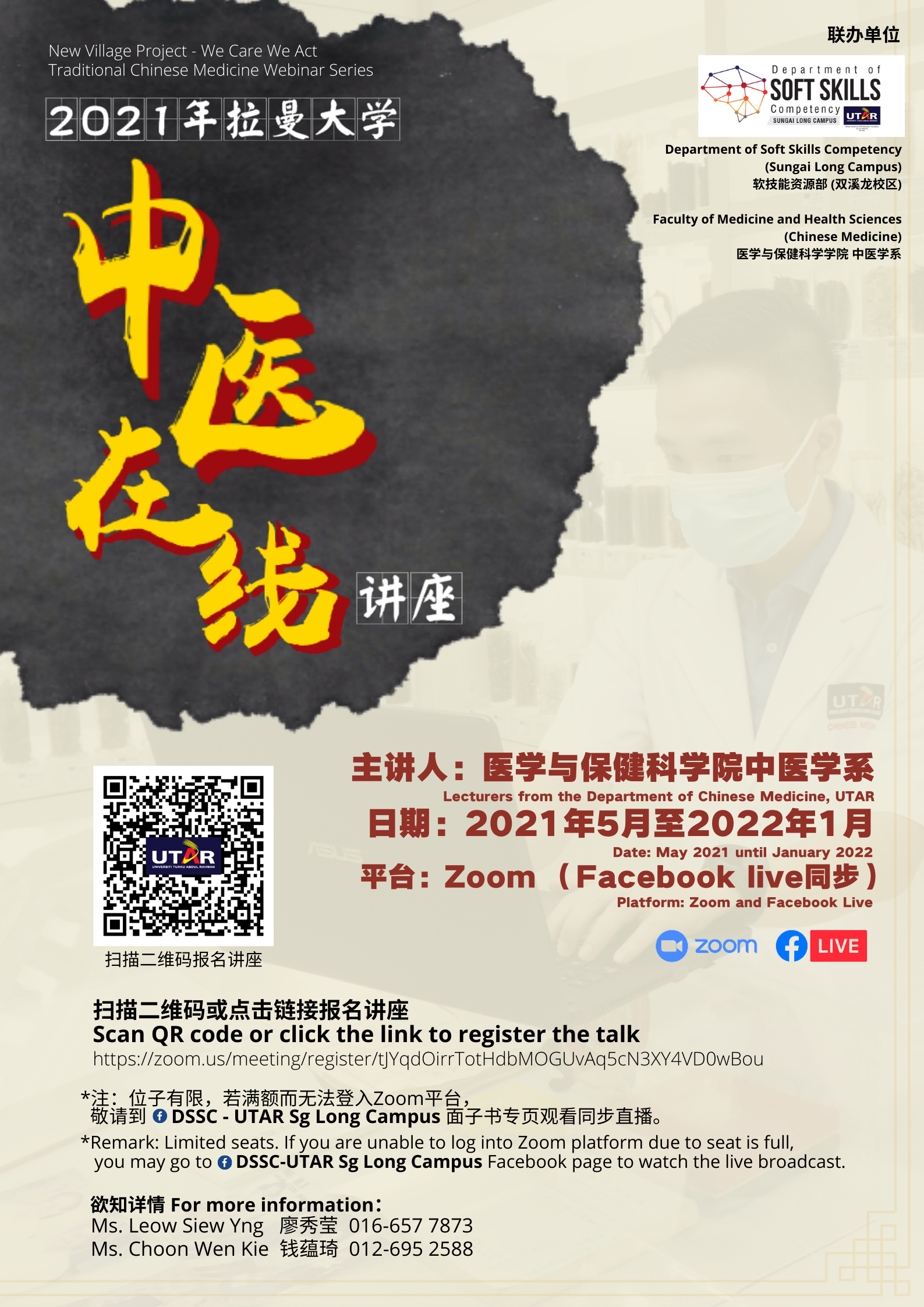

Donation to UTAR Hospital is now made available through #DonateviaPBeQR
![]()
![]()
© 2021 UNIVERSITI TUNKU ABDUL RAHMAN DU012(A).
Wholly owned by UTAR Education Foundation (200201010564(578227-M)) LEGAL STATEMENT TERM OF USAGE PRIVACY NOTICE